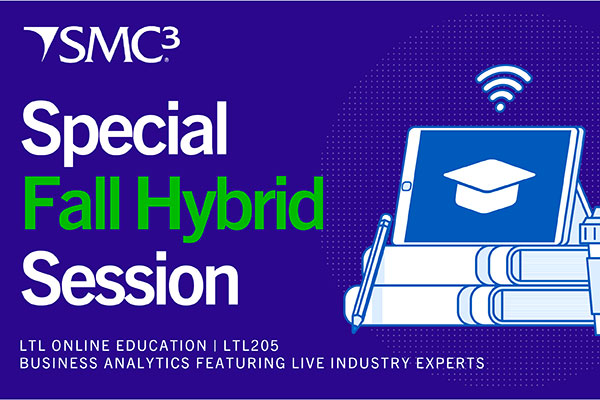If there’s one immutable truth in the world of logistics, it’s this: LTL is an inherently complex form of transportation. Tariffs, rates, DIM weights, transit times — it’s enough to confuse even seasoned logistics professionals. The solution to this knowledge gap has historically been on-the-job training or university supply chain education, but for a variety of reasons there is now a pressing need for third-party, remote LTL training that prepares logistics workers for transportation success.
Global Scope Can Overlook Local Intricacies
In the past, professionals looking to move into a supply chain career learned about the basics of supply chain from universities. However, many of these college supply chain programs are now global in scope, focusing on worldwide supply chain management instead of the intricacies of specialized domestic transportation. And even these programs, which used to be widespread, are becoming less common. LTL is not an industry of broad-brush strokes; supply chain professionals really need a pointillistic understanding of the logistics of LTL in order to excel in the industry.
Accelerating Need for Dedicated LTL Education
This lack of specified training put the onus on employers to prepare new hires with the LTL knowledge needed to do their jobs. Dedicated LTL study is a necessity, not a luxury. At the same time, changes in LTL and the broader supply chain world are accelerating. The reliance on e-commerce has ballooned since the start of the pandemic, and last-mile LTL shipments and related e-commerce strains on the supply chain won’t diminish once social distancing abates.
That genie isn’t going back into the bottle. So supply chain employers need logistics workers that are fully versed in all aspects of the industry, ready to solve unique shipping and delivery problems based on their extensive supply chain knowledge But why care about LTL? It’s been reported that some shippers in today’s world are no longer concerned with what mode is used to ship their goods.
A Multimodal Approach Ensures On-Time Delivery
This mode agnosticism means supply chain stakeholders have to be well versed in all modes of transportation. As unforeseen weather events and other disruptions, such as protests, become more common, savvy logistics employees will need to be armed with familiarity of all modes, not just the most popular, to ensure that freight is delivered on time, without damage, and in the most financially expedient way possible. Offerings like SMC³’s LTL online education courses cover a wide range of topics from LTL basics and operations to more advanced concepts like pricing analytics and transportation law. The company also has plans to continually refresh content, adding new expert presenters and taking the feedback of students to make the courses even better as time goes on.
Register today for a special SMC³ Online Education hybrid session combining self-paced online coursework and live industry experts each week. LTL205: LTL Business Analytics begins October 21. This class is a capstone course for carriers, shippers and LSPs looking to further their industry education knowledge, and also provides invaluable insight into earning your LTL certification.
SC
MR


More Finance
- Investor expectations influencing supply chain decision-making
- ISM reports manufacturing sees growth in March, snaps 16-month stretch of contraction
- Supply Chains Facing New Pressures as Companies Seek Cost Savings
- February retail sales see annual and sequential gains, reports Commerce and NRF
- A New Model for Retailer-Supplier Collaboration
- How to Create Real Retailer-Brand Loyalty
- More Finance
Latest Podcast

 Explore
Explore
Topics
Business Management News
- Planning fatigue may be settling in
- Inflation, economic worries among top supply chain concerns for SMBs
- April Services PMI declines following 15 months of growth, reports ISM
- Attacking stubborn COGS inflation with Digital Design-and-Source-to-Value
- Joseph Esteves named CEO of SGS Maine Pointe
- Employees, employers hold divergent views on upskilling the workforce
- More Business Management
Latest Business Management Resources

Subscribe

Supply Chain Management Review delivers the best industry content.

Editors’ Picks





